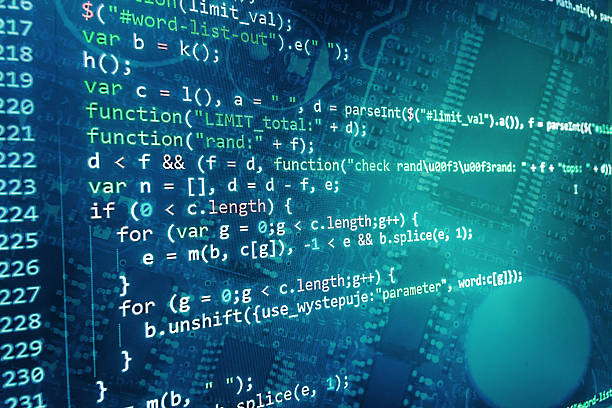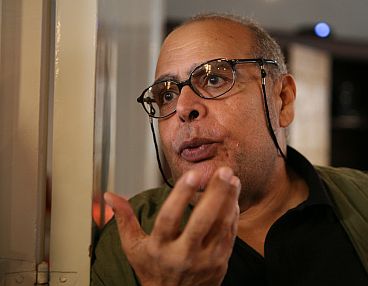
In my previous article, I demonstrated the phenomenon of what I called ‘intellectual castration’, something which extended from about the eleventh century to the present day and the individual impact of which was reflected in society.
LOGICAL CAPACITY is the ability of thought to perceive phenomena and attempt to provide a logical explanation for them [1] (rational thinking capacity). This capacity is vital for the continuity and development of life. The process of building the logical capacity of the individual is similar to the process of programming a computer with basic operating programmes (e.g. the MS-DOS Operating System), failing these basic programmes the computer cannot function. This capacity grows and develops with training. This is what advanced societies strive for in the way they raise their generations, preparing them to build contemporary societies that adopt logical thinking in their daily lives. What the intellectual castration primarily aims at is seeking to disrupt this logical capacity instead of training and developing it.
The process of intellectual castration in Arab and Islamic societies gradually grows with the individual as it is progressively assimilated and absorbs intellectual restrictions and the programming process smoothly and voluntarily. The family, the street, and even the school contribute to this seemingly spontaneous process, one that passes unnoticed. In this sense, the ‘castrated eunuch’ becomes aware of his problem only when he changes his environment and lives in an open society. This process of intellectual castration leads on the societal level to social ignorance. Such a process of ignorance has insinuated itself into Islamic thought and actually has nothing to do with the religion itself – given that it the insinuation took place after nearly four centuries subsequent to the advent of Islam.
The educational system provides the community with functionaries with high levels of specialization, but with limited intellectual capacities
The process of social ignorance complicates the situation of Arab and Islamic societies. Schools and universities in these universities are nothing more than institutions that seek to churn out professionals for the servicing of societal functions. As for intellectual education and behavioural patterns, individuals imbibe these from society itself. And here is where the great calamity lies: the educational system provides the community with functionaries with high levels of specialization, but with limited intellectual capacities. Such professional competencies can easily be manipulated by those ‘programming in’ the ignorance. Many professional functionaries have been employed in the arena of terrorism, with their full conviction, and made to follow other patterns of behaviour that may be less dangerous, since they cannot work without conforming to the directives of a reference programme to guide him in performing his specialised function. Some are simply unable to apply themselves to the scientific research method – particularly in fields such as biology (genetics and genetics), sociology, psychology or the general human sciences – without first obtaining the approval of a certain legal authority that allows them to do so and which determines the extent of their activity. Because it grows with the individual, this process of ignorance has an identical impact whether in the professional classes or among ordinary people.
Technological development is progressing rapidly in the field of information and knowledge transfer, but this technological development is nothing more than a dual-use tool. The negative side to this is the widespread use of advanced technology to merely increase the of level ignorance in society and control it. Various satellite channels (which have become a sizeable investment tool), websites viewed on computers and mobile phones, all provide information on demand. All of these have invested in contemporary social ignorance in all parts of Arab and Islamic societies, seeking to access this ‘programmed’ individual, one who remains powerless in the face of his programmers.
Professional competencies can easily be manipulated by those ‘programming in’ the ignorance
Some countries have enacted laws such as the “Contempt of Religion Law”, ironically perhaps to reduce the problems of religious conflicts in society. Such legislation, however, itself contributed to the processes of intellectual castration that is taking place at every moment and around the clock. Many intellectuals have been prosecuted for ‘defaming religion’ simply because they subjected the inherited religious thought to the search for scientific verification, intellectuals such as Faraj Fouda, Nasr Hamid Abu Zaid, Sayyid Al-Qimny and Islam al-Behairi, or for publishing artistic creations seen as contemptuous of the faith and the culture, such as Nawal Al-Saadawi, Helmy Salem, Alaa Hamed and others. Such laws, which appear to be respectful of religions, inwardly condone and protect the organized processes of ignorance that have impeded and still impede Arab and Islamic societies from living their daily lives and creating generations capable of using their intellectual capabilities uninterrupted. Operations of ignorance led and still lead to economic and social destruction at the level of the societies themselves, and the impact of this ignorance has extended to the global level as demonstrated by the phenomenon of terrorism.

Suggested Reading
The impact of accumulated stultification processes over the last ten centuries, in addition to the modern use of technology in contemporary stultification processes, complicates the matter immeasurably. The problem is very serious yet everyone is trying to evade it or deny its existence completely. We consequently hold that Arab and Islamic countries and governments – since they are responsible for the health care of their societies when exposed to an epidemic like this – are to be held responsible equally for the abnormal social intellectual pattern that is prevailing in their societies. As we said, the danger and damage are no longer local, but rather have extended their scope towards the international community. These countries are therefore called upon to legislate laws that respect thought and prevent societal ignorance, whether organized or unorganized. What is more, there must be an intellectual education for the child which promotes the development of his capacities for logic undeterred and unintimidated, and nurtures the development of an ability to be creative and intellectually stimulated.
It must be acknowledged, however, that the impact of the accumulation of stultification processes over the last ten centuries, in addition to the modern use of technology in contemporary stultification processes, does make this a hugely complicated matter. Nevertheless, at the international level, by making states responsible for their prevailing intellectual patterns and by assisting them in developing their societies, this will contribute to some extent towards facilitating the application of laws that combat ignorance and foster the development of educational curricula to nurture generations that intellectually keep pace with their contemporary peers.
[1]-Cynthia T. Richett, and Benjamin B. Tregoe, Analytic Processes for School Leaders, ASCD, 2001


